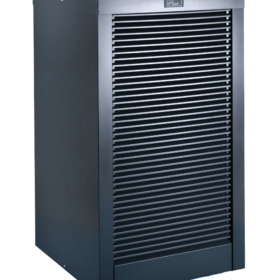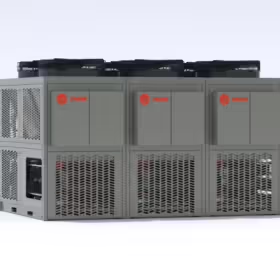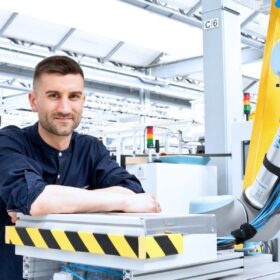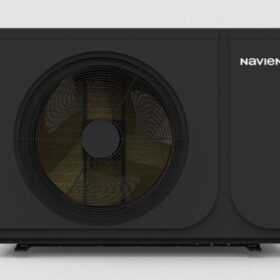Diego Luxembourg launches resindential air-to-water heat pump
The Luxembourg-based manufacturer said the new product can reach flow temperatures of up to 72 C and achieve a seasonal coefficient of performance (SCOP) of up to 5.7.
Canadian government extends heat pump grant scheme
The provincial government of Prince Edward Island, Canada, has signed an agreement with the Canadian federal government to implement the Oil to Heat Pump Affordability (OHPA) program. The scheme offers grants to low- and medium-income households to install heat pumps and has nationally delivered more than 7,000 units to date.
Water-source heat pump integrating cooled photovoltaic panels, thermal storage
Researchers in Italy have designed a water-source heat pump system intended for generating cooling, heating and domestic hot water in social housing stock built during the 1970s–1990s. The novel concept integrates photovoltaic-thermal energy with thermal storage and promises a seasonal coefficient of performance of 5.
Trane launches all-in-one air-source modular multi-pipe heat pump
The Thermafit Air-Source Modular Multipipe heat pump uses R-454B as the refrigerant and has a size of 30 tons. The manufacturer said the system act as a chiller to cool the building, as a heat pump to heat the building, or as a heat recovery unit to deliver simultaneous heating and cooling.
New fault detection techniques for air-to-air heat pumps
Portuguese researchers have compared several applied machine learning techniques to detect faults in air-to-air heat pumps in cooling mode. The results showed a high level of performance based on four metrics.
Elastocalorics could replace heat pumps, air conditioning systems
Elastocalorics have the potential to replace current air conditioning and heating systems, offering significant energy savings when paired with technologies such as photovoltaics.
UK energy retailers add heat pump tariffs
Time-of-use and type-of-use tariffs for heat pump customers launched to support technology adoption in market where gas heating remains competitive on price.
Energielenker releases ‘self-learning’ energy management system
Germany-based Energielenker has developed a “self-learning” energy management system that controls energy flows in buildings with PV systems, using AI algorithms to analyze data from all relevant components.
Navien unveils residential air-source heat pump
The South Korean heating specialist said its new heat pump can achieve a seasonal coefficient of performance of up to 4.87 and flow temperatures of up to 75 C.
Rhoss launches non-reversible water-source heat pumps for high-temperature heating
Italy-based Rhoss has developed a cascaded water-source heat pump that uses either R1234ze or R515B as the refrigerant. It can purportedly produce hot water to a temperature of up to 85 C.










